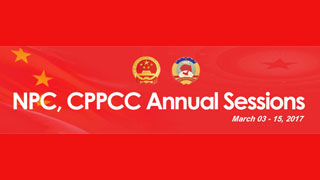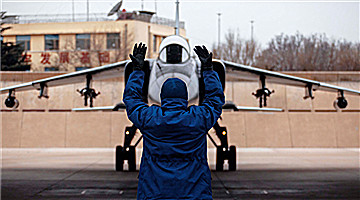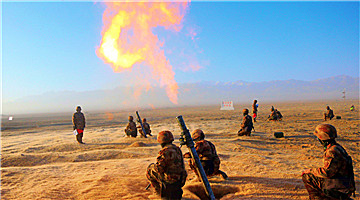By Zhao Lixin
South and North Korean delegations held a rare meeting Tuesday morning at the truce village of Panmunjom. The talks, mainly about Pyongyang sending a delegation to the PyeongChang Winter Olympics next month, were the first high-level inter-Korean dialogue since South Korean President Moon Jae-in took office and also since a vice-ministerial bilateral meeting in December 2015.
North Korean leader Kim Jong-un said in his New Year speech that he would like to send a delegation to the PyeongChang Olympics. On January 2, Seoul proposed a high-level meeting and the communications hot line at Panmunjom reconnected the next day. Washington and Seoul agreed on January 4 to postpone military drills until after the Games, and then Pyongyang on Friday accepted the offer of talks. The fast, smooth progress made the highly anticipated talks more meaningful than the Olympics.
The talks mainly focused on Pyongyang's participation in the Games and the reunion of family members separated during the Korean War (1950-53). The two sides also reached an agreement on the North sending delegations to the South and a military meeting during the Olympics.
Everything seems to be coming up roses. However, there was a detail worth noting. According to the New York Times, the head of the North Korean delegation Ri Son-gwon expected to open the whole meeting process to the press while his South Korean counterpart only said they would brief media on relevant developments when necessary. It remains a question why South Korea, the country that likes to flaunt its openness and freedom, preferred secrecy.
Beijing and Washington welcomed the talks. US President Donald Trump supported "President Moon 100 percent" and hoped for positive developments "beyond the Olympics." It's not known whether the talks will extend beyond the Olympics, which may not be as important. What is important is if the South-North deal strays beyond what the US permits, then Seoul may be in trouble.
Although the meeting was seen as a positive signal to ease spiraling tensions, the international community is still skeptical of it.
In early December, Washington and Seoul held the Vigilant Ace aerial drill in response to Pyongyang's launch of the Hwasong-15 intercontinental ballistic missile. On December 22, the UN Security Council adopted Resolution 2397, tightening sanctions on North Korea. These moves plunged Pyongyang into unprecedented isolation and pressure.
At the critical moment, President Moon chose to deliver a warm message, seek national reconciliation and create a favorable atmosphere for the Olympics. But if he fails to handle the process well and easily meets the requests of the North, his administration and even the international community may perceive his approach as giving tacit approval to North Korea as a nuclear state.
South Korea's Yonhap News Agency reported that "South Korea may consider the temporary lifting of sanctions against North Korea if it is necessary to enable North Korean officials to visit the South" during the Olympics. The maneuver is bewildering now that UN sanctions on Pyongyang have yielded initial results. The Blue House in Seoul might be worrying about whether North Korea will create trouble if its demands are not met. Nonetheless, giving up fundamental, long-term strategic interests simply for a harmonious Olympics is in no way a wise choice.
Since Kim announced North Korea has finally "realized the great historic cause of completing the state nuclear force and the cause of building a rocket power" late last year, there have been predictions that the nation will launch a "peace offensive" in the new year given its national policy of byungjin: dual development of the national economy and nuclear weapons program.
Pyongyang has two cards to play. The first is nuclear weapons. The Blue House firmly objects to the North owning nuclear arms, but to a divided South Korean society, the arms serve as both a deterrent and an attraction for those longing for reunification and the construction of a nuclear power. The second is the family ties that still exist between those in the North and the South since the two states split. If North Korea does not change policy, it may have to undergo a new "arduous march," the phrase Pyongyang uses for the 1990s famine. If the consequences of the North Korean crisis are shifted onto its people, then rescuing and helping their Northern compatriots will become an obligation for South Koreans.
Kim displayed his astute diplomatic skills by continuing with the nuclear program while seeking to weaken the resolution of the international community to punish his country. He took advantage of Seoul's yearning for a perfect Olympics and made overtures on New Year's day.
For Moon, an alleviation in tensions provides comfort amid the escalating belligerence between Trump and Kim.
Pyongyang has posed a big conundrum for Seoul. If Moon is weak with Pyongyang, he will be labeled an appeaser, but getting tough goes against his left-wing identity and Sunshine Policy. Is there a middle path?
The author is director of the Department of International Political Science, College of Political Science and Public Management, Yanbian University.












